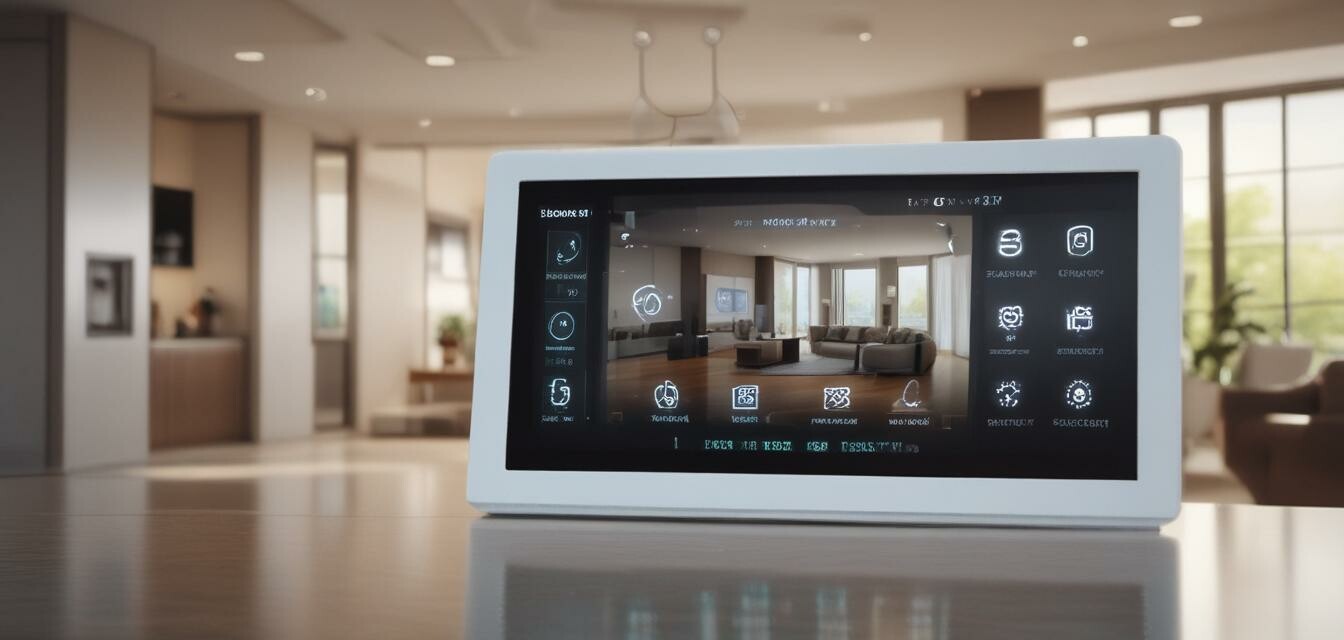
Smart Home Security
The Growing Importance of Home Automation in Security
Key Takeaways
- Home automation improves security by integrating various devices into a cohesive system.
- Recent advancements in technology enhance remote monitoring capabilities.
- Automated systems can deter break-ins and offer peace of mind.
- Trends indicate a growing investment in smart home security solutions.
As we venture into 2025, the world of home automation is becoming increasingly vital in enhancing the safety and security of our homes. The integration of smart devices into our daily lives not only streamlines our routines but also fortifies our living spaces against potential threats. From smart locks to surveillance cameras, the evolution of technology continues to pave the way for more secure homes. In this article, we will explore the significant trends and developments in the realm of home automation and its impact on security.
The rise of home automation systems
Home automation has transformed the way homeowners approach security. With the ability to control various devices from a single platform, integrating advanced security measures has never been easier. Here are some trends contributing to this rise:
- Smart devices: Items such as smart locks, video doorbells, and security cameras are becoming more common.
- Remote access: Homeowners can monitor their properties from anywhere using mobile applications.
- Voice control: Smart assistants allow for hands-free control over security systems.
How home automation enhances security
Integrating home automation into security systems provides numerous benefits:
| Benefit | Description |
|---|---|
| Increased control | Homeowners can configure their security systems based on their unique preferences. |
| Real-time alerts | Receive notifications on suspicious activities as they happen. |
| Energy efficiency | Reduce energy costs by automating lighting and heating systems when no one's home. |
Impact of recent technological advancements
The pace of technological advancements in home automation is noteworthy. Several emerging technologies are shaping the landscape of home security:
- AI and machine learning: These technologies enhance surveillance capabilities by reducing false alarms.
- IoT integration: Internet of Things (IoT) devices work together to create a seamless security experience.
- Mobile compatibility: Users can manage their home security from their smartphones, providing convenience and flexibility.
Home automation in action
Consider the following scenarios to understand how automation functions effectively in enhancing security:
- Remote monitoring: A homeowner can check their security cameras live while on vacation.
- Automated lighting: Lights can be programmed to turn on and off while everyone is away, simulating occupancy.
- Remote locks: Homeowners can lock or unlock doors for guests without being present.
Current trends in the smart home security market
The market for smart home security is rapidly expanding. Here are some of the current trends driving growth:
- Increased investment: Homeowners are willing to spend more on premium systems for enhanced peace of mind.
- Integration with existing devices: Many new systems offer compatibility with already owned devices.
- Focus on privacy: Brands are prioritizing security features that protect personal data.
Future implications
As technology continues to advance, homeowners can expect even greater innovations in home automation and security systems. The integration of enhanced machine learning algorithms and increased connectivity will further reduce risks and improve overall safety.
Conclusion
In conclusion, the growing importance of home automation in security cannot be overstated. The harmonious blend of technology not only elevates the convenience of daily living but also fortifies homes against potential dangers. As the industry continues to evolve, homeowners need to keep informed about the latest gadgets and systems that can enhance their security.
Pros
- Enhanced safety through advanced technology.
- Greater convenience with remote access to security features.
- Potential for cost savings on energy bills.
Cons
- Initial investment can be high for comprehensive systems.
- Dependence on internet connectivity for system functionality.
For further insights and guides on smart home security trends, explore our FAQs, or check our complete home automation systems review! For more tips on ensuring your home remains secure, visit our Home Security Tips page.